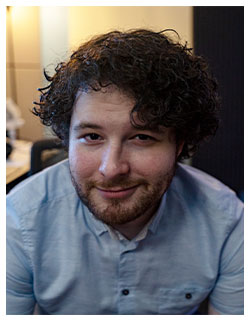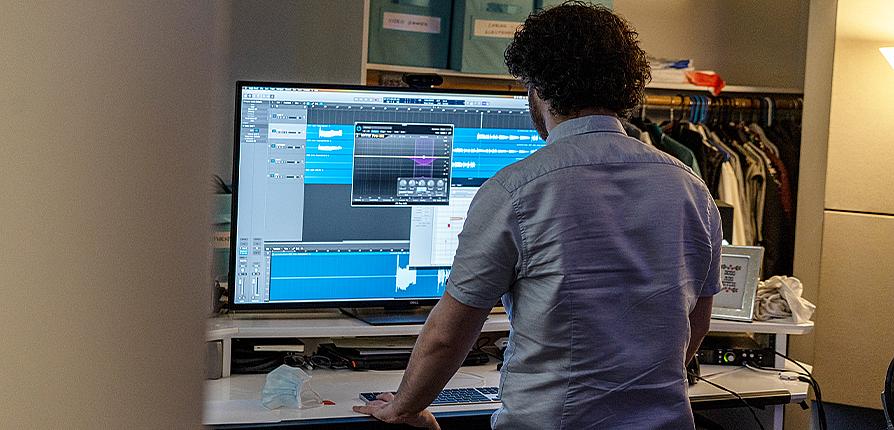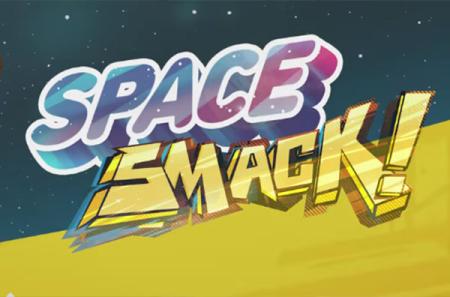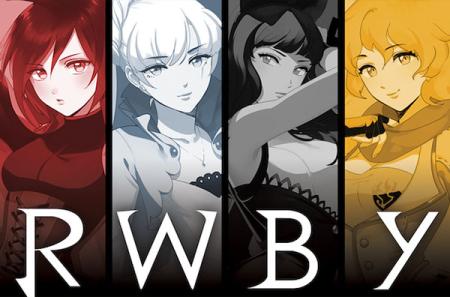Music composer shares expertise with students in creating video game soundtracks for game development powerhouse
Story by Robbie Goodrich ’82

Class of 2017
Mason Lieberman ’17 has been playing video games since he was old enough to hold a controller. By the time he was 5, he had already decided his life’s goal was to compose music for Nintendo and Super Smash Bros.
"However, I’m not sure I really realized ‘game composer’ was a career at that age," Lieberman said. "I think I started to narrow down from general video game musician to composer specifically in high school." He scored his first game, a tiny mobile title called Bounce the Block, as a freshman at SFA.
Fast forward to 2021 and Lieberman, who spent two years at SFA and then completed an undergraduate degree at Boston’s Berklee College of Music followed by a master’s degree from SFA in music composition, now works for Tencent, considered to be the world’s largest video game vendor. His duties can range from hiring special guest artists for projects and managing studio sessions to designing recording studio facilities and negotiating licensing deals, among many other responsibilities.
But his latest big score is his work helping prepare SFA music composition students for similar promising careers.
As the senior game audio coordinator for Tencent in the U.S., Lieberman solves audio problems and helps manage the department in pursuit of various company goals to "make sure we’re creating the best music, sound and voice-over possible," he said. "All of this occurs against the backdrop of the largest company in all of game development."

Recently added to his job titles is that of adjunct instructor in the SFA School of Music for which he remotely teaches specialized classes he created in video game sound design from his home base in Los Angeles. More than a year ago, Lieberman and his former music composition professor at SFA, Dr. Stephen Lias (pictured), began working with Southern Methodist University’s Guildhall game development program to establish collaborative projects in which SFA students worked with SMU students to develop music for video games. SMU Guildhall was established in 2003 as a premier graduate-level video game development education program in the United States. It was created at the request of the game development industry to train its future leaders, according to information at smu.edu/guildhall.
"Guildhall is a powerhouse program with deep industry partnerships and an international reputation," Lias said, "so our goal was to create a pipeline for our students to work with theirs once Mason’s classes gave them the necessary preparation."

This past fall, the first collaborative effort between the two universities took place and included SFA students Caleb Guevara, a senior composition major from Houston; Daniel Cooper, a distance graduate student majoring in theory-composition from Hilton, New York; and Travis Wattigney, a recently graduated composition major from Fort Worth and a former College of Fine Arts Dean’s Circle award winner in music. Designed to give the students valuable real-world experience and put them at the forefront of the industry that scores music and creates sound design for video games, the first collaborative project, with SFA students participating remotely, was deemed a huge success, according to Steve Stringer (pictured), deputy director of the GameLab at SMU Guildhall.
"Daniel, Caleb and Travis knocked it out of the park, and we couldn’t be happier with the results," Stringer said. "The soundtrack has a retro, ‘arcady’ feel, and as I watch everyone play and enjoy the game, I can see heads bouncing and feet tapping to the beat. It sticks in your head for days (in a good way) and is one of the standout features of the game."
SMU’s Team Game Project set of courses brings art, design, production and programming students together to create games in a simulated game studio environment. SFA students collaborated on Space Smack!, a capstone project. During the course of the fall semester, they closely worked with the SMU-based team to craft a memorable music track and soundscape for the game. From the SFA students’ perspective, they were able to fully participate in an actual game production, and they’ve added a shipped (released) title to their résumés, which will help them get into the games industry more easily. From SMU’s perspective, they were full team members who simply worked remotely, Stringer said.
"For the SFA students, they were able to plug into a professional-grade game production and gain valuable experience working with others to create a shipped game," Stringer said. "This work was integrated into their course at SFA taught by Mason, which allowed him to integrate with his own pedagogy and assignments. It’s incredibly hard to break into our industry without that experience, and many music and sound design programs don’t have access to such opportunities. I hope Mason and his students got a lot of value out of the collaboration — as much as we did."
Guevara said learning the traits and skills of a game developing professional topped his experience as a project participant.
"Having good communication skills, time management skills and the skills needed to complete a project became very apparent throughout the process of writing the music," Guevara said. "This collaboration allowed me to use all of those skills in order to deliver a polished, finished product — something I will be proud of when I look back at this project. This experience and the time I spent on the project have already put me miles ahead of where I thought I would be in my career when I first started college. I am thankful for this opportunity and all that it has taught me."
This project and future ones like it fall in place with one of Lieberman’s personal and career goals of bringing talented people together through music. With numerous credits as a composer, recording artist and producer on popular anime series, triple-A game titles, and Western TV shows and advertising campaigns, his industry experience has generally been at the crossroads of East Asian and Western multimedia.
Having started his professional journey as a full-time freelancer, Lieberman is most known for his work composing on anime series like Rooster Teeth’s RWBY and Beyblade Burst Evolution, among others. In 2019, he partnered with Asia Pacific government officials as an international ambassador to Australia representing the video game music industry. As a cellist, guitarist and vocalist, Lieberman has worked with a variety of film and gaming franchises.
"I’ve always been very focused on bringing people together and helping to make my industry a warmer place," he said. "Tencent happened to be in need of someone with a combination of audio chops, negotiation skills, game development consulting experience and in-depth familiarity with the Chinese and Japanese game development scenes. I am lucky to say that turned out to be me."
Teaching others to successfully navigate the industry he loves is another passion.
"While completing my master’s degree, I knew I wanted to focus on video game music, as it has been one of the driving passions of my life," Lieberman said. "I knew I loved teaching, and I hoped to one day direct a collegiate game audio program. Finally, I knew SFA was lacking in any game audio courses. I wanted to see the school that helped me so much come to the fore on game audio education. Multimedia scoring is a major frontier for composers in 2021, and gaming represents one of the absolute largest blocs of profit-generating entertainment in the world. The opportunities are there, and I really want SFA students to be taking advantage of that. I created the courses as proof of my thesis, and the School of Music felt they were a good enough fit that they asked me to stay on as a faculty member to continue teaching them.
"I’ve been extraordinarily lucky to do the things I’ve done," Lieberman said.
"I’ve collaborated with many of my personal heroes like Yoko Kanno and the Seatbelts, scored major franchise titles, worked on Nintendo intellectual property, worked in-house for Tencent and had an absolute blast the entire time."
"Honestly, I just want to keep on doing new things. I love what I do, and I’d consider myself quite lucky if I got to do more of it."
 Axe ’Em, Jacks!
Axe ’Em, Jacks!



